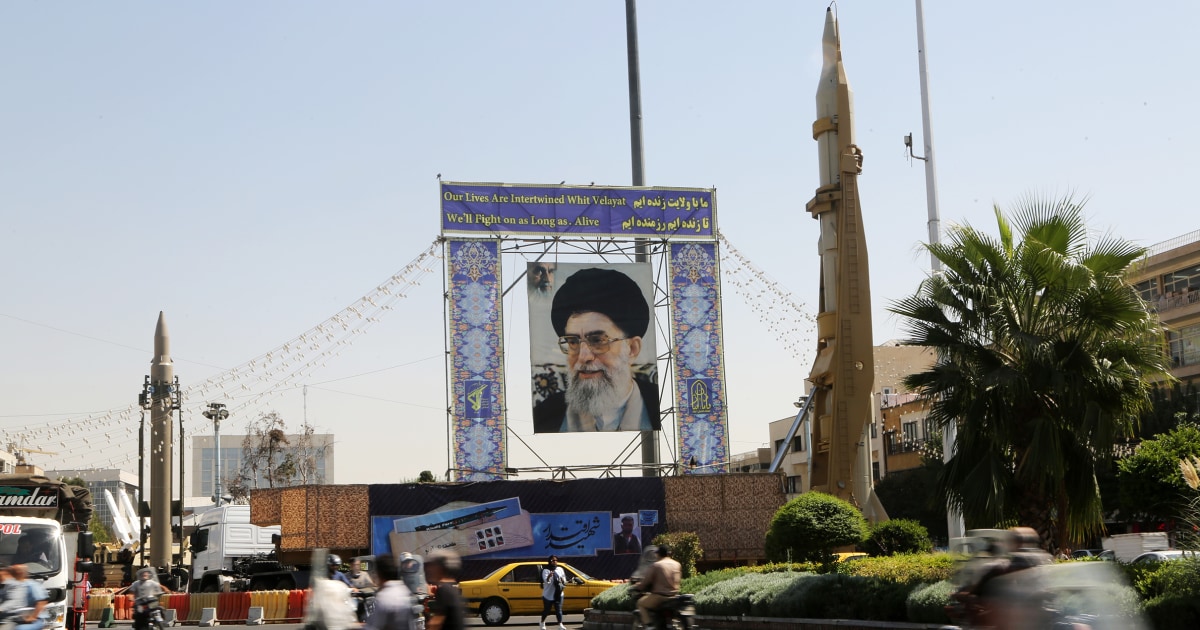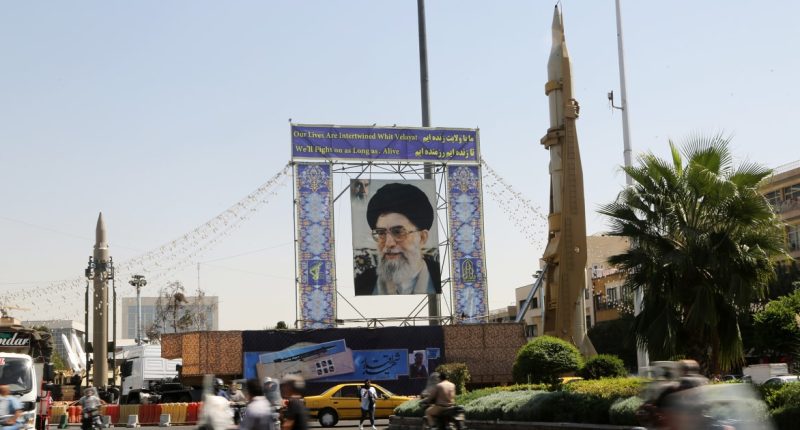
The Biden administration on Wednesday vowed to maintain restrictions on Iran’s ballistic missile and drone programs after U.N. Security Council sanctions on Tehran’s missile arsenal expired.
The administration announced new sanctions and other measures designed to prevent Iran from selling or acquiring parts or technology related to ballistic missiles or drones, saying that Washington would remain focused on the issue despite the expiration of the U.N. measures.
The announcement came as the U.S. accused Iran of being complicit in the Oct. 7 Hamas attack on Israel that claimed hundreds of civilian lives, citing Tehran’s long-running support for the group’s militants with training and weapons, which has included rocket technology.
“We’re very concerned about Iran’s proliferation of missiles and UAVs (unmanned aerial vehicles),” a senior State Department official said. “And we’re taking action. It’s not business as usual,” the official said. “We’re cleareyed about the Iranian threat.”
Russia has said it is no longer bound by the U.N. Security Council restrictions that expired Wednesday, though it has not indicated whether it would opt to provide technology or assistance to Iran’s missile projects.
The U.N. restrictions expired under a “sunset” provision in the 2015 Iran nuclear deal, which eased sanctions on Tehran in return for limits on the country’s nuclear program. Then-President Donald Trump withdrew the United States from the deal in 2018 and reimposed U.S. sanctions and introduced new sanctions.
The Biden administration said it had sanctioned 11 individuals, eight entities and a vessel based in Iran, China and Venezuela for allegedly supporting the production and proliferation of Iran’s missiles and drones. It also issued an advisory to private industry citing dual-use technologies that could be used for Iran’s arsenal.
The administration also issued a joint statement from 46 countries pledging to take action to prevent the supply, sale or transfer of ballistic missile-related or drone-related items to and from Iran, including bolstering interdiction efforts.
The Biden administration has faced criticism from Republicans in Washington over its past diplomatic efforts to try to revive the 2015 Iran nuclear deal and its decision to grant Iran access to $6 billion in frozen Iranian oil revenue to secure the release of five Americans held prisoner in Tehran.
Critics of the administration’s policy also argue the White House should have taken action to prevent the expiration of the U.N. sanctions on Iran’s ballistic missile activities, saying it could have invoked a provision in the 2015 nuclear deal to “snap-back” the sanctions.
“Lapsing U.N. penalties on Iran’s ballistic missile tests, transfers and other activities will be yet another sign of the international community’s irresolution to say and do the right thing on Iran. It will, therefore, embolden Iran to double down on its terror proxies and arms proliferation,” said Behnam Ben Taleblu, a senior fellow with the Foundation for Defense of Democracies.
Source: | This article originally belongs to Nbcnews.com









